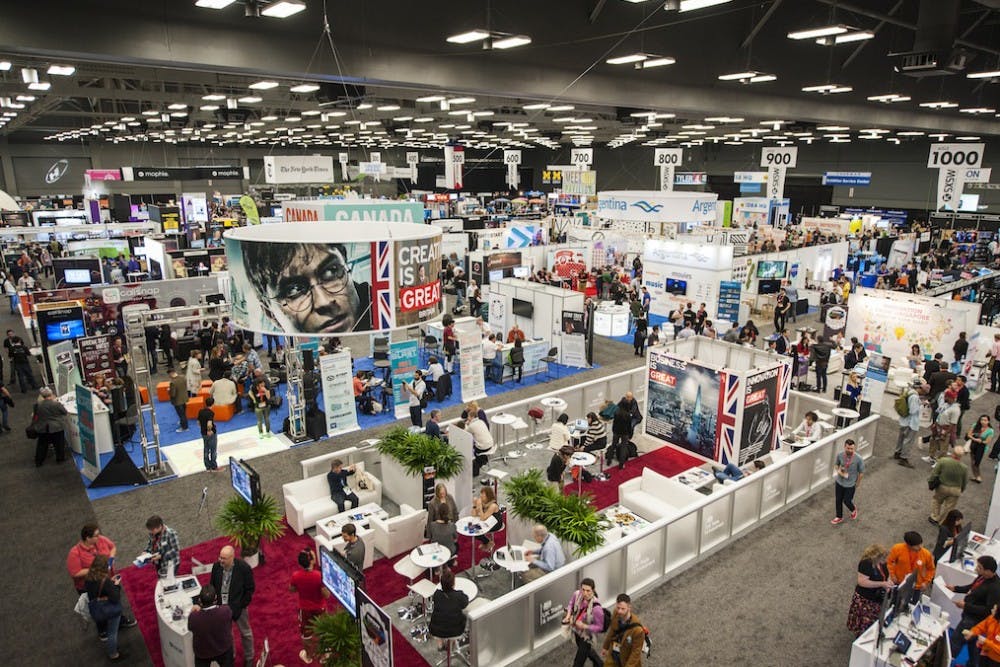
BioBots was recently awarded the Most Innovative Company at the South by Southwest Interactive Festival.
Credit: Merrick Ales , Courtesy of Merrick Ales/Creative CommonsPenn alumni are revolutionizing 3D printing technology with their new product known as BioBots — which was recently awarded the Most Innovative Company at the South by Southwest Interactive Festival this past March.
BioBots provides a cheaper option for researchers who need to build 3D functional structures of living tissue.
2014 College graduate Danny Cabrera, along with 2013 College graduate Ricardo Solorzano were inspired to build a prototype for BioBots from the idea of thinking of biology as a technology that can be used to engineer new systems.
“The vision driving us was the idea that we could build new bio-printed therapies for patients,” Cabrera said. “We think that building standardized, accessible tools that are translatable across industries is the answer.”
While the South by Southwest Festival may not focus on healthcare, the BioBiots team saw the opportunity as a stepping stone. “This is not reaching their customers, but they are putting themselves on the map. It gives them great exposure through press and investors," said Elliot Menschik, a managing partner at DreamIt Ventures, which supports BioBots.
The team started its idea while at Penn and, with the help of various accelerator programs and competition prizes, has been able to increase its funding, marketing appeal and investment interest.
While many 3D printers use heat or ultraviolet light to construct computer-generated prototypes, BioBots uses visible light to harden living materials without harming the cells.
“We are building things that are easy to use,” Cabrera said. “We are also making them desktop size so that they are more personal and priced at a lower point to be used by smaller research labs.”
Engineering Entrepreneurship professor Jeffrey Babin has helped Cabrera and Solorzano make their vision a reality through the Wharton Venture Initiation Program by providing educational programs and individual advising.
“They’ve really moved along on product and market development and understanding where the needs are for the product,” Babin said. “They’ve done a great job of getting themselves out there.”
BioBots won the 2014 Pennvention competition, hosted by the Weiss Tech House, with the help of another group member, 2013 Engineering and Wharton graduate Sohaib Hashmi, which awarded them $5,000 and a connection to another startup accelerator known as DreamIt Ventures, which recruits teams from around the world.
Menschik was taken with the personalities of the BioBots founders as well as their skill and hustle when they first came to DreamIt Ventures last year. “They had the right ingredients for the type of companies we look for,” he said.
DreamIt Ventures is a fantasy for startup teams, as it provides monetary aid, free work space and expert advice on how to expand a brand and product.
Cabrera has high hopes for the future of BioBots, which is now mostly used by academics in research labs, who can’t afford more expensive bio-printing equipment. The biotechnology industry has also expressed interest in this type of 3D printing to replace animal testing of certain drugs.
“The goal is to eventually provide custom replacements for people with organ failures,” Cabrera said. In the meantime, Cabrera and Solorzano hope to bring BioBots into the pharmaceutical industry, where they are going to be used to develop new drugs.
The Daily Pennsylvanian is an independent, student-run newspaper. Please consider making a donation to support the coverage that shapes the University. Your generosity ensures a future of strong journalism at Penn.
DonatePlease note All comments are eligible for publication in The Daily Pennsylvanian.





